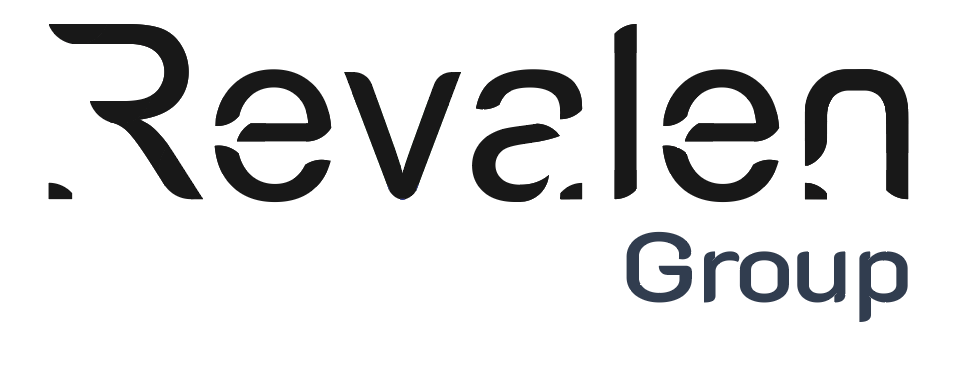Our Values and Standards
At Revalen, our values are not aspirational — they are operational. They guide our decision-making, shape our partnerships, and define how we conduct ourselves.
Our Purpose
Values are often spoken of as ethical signposts - important, but separate from the core mechanics of business. At Revalen, we see them differently. Our values are the mechanics; the blueprint for how enduring societal and financial value is created.
When we focus on progress that serves people, advances technology with purpose, and respects the environment within which we operate, we build enterprises that matter - ones that communities want, talent seeks out, and capital sustains. Financial return, in this model, isn’t the aim. It’s the outcome. A natural consequence of contribution, relevance, and trust.
These principles are not aspirational statements. They are operating standards - practical, intentional, and embedded in every decision we make. We fiercely reject the stale logic of shareholder-first thinking, cost-cutting without context, or growth at the expense of safety, integrity, or innovation. These approaches may be conventional, but they are no longer credible.
We expect those we work with - partners, subcontractors, collaborators - to respect this approach. At a minimum, they must allow Revalen and its people to uphold these values without compromise. Ideally, they’ll go further, embracing these values and integrating the same standards into their own work.
Holding to these values will often mean standing apart. It will take resolve to push back on deeply embedded norms, and creativity to develop solutions that honour both principle and performance. But we firmly believe that this is the only path worth taking. It’s the only path that produces not just short-term wins, but long-term impact, financial abundance and non-material wealth.
This document sets out the values and standards that define how Revalen operates, and what we expect from those we engage with - whether in joint ventures, client partnerships, delivery networks, or investment relationships. These principles are intended to:
- Define the mindset, behaviour, and shared responsibility expected from everyone involved—guiding how we think, decide, and act, especially when the way forward isn’t obvious.
- Shape clear choices about the projects, partnerships, and directions we commit to, or consciously avoid.
- Help us stay oriented toward building a safe, profitable, and sustainable future, not through perfection, but through consistent course correction.
We move forward with those who see value in this, not just as a principle, but as a practical, proven way to build something enduring.
Shared Values
Protect
Protect against violence, fear, conflict, and unnecessary suffering.
Provide
Provide the essentials for a dignified life: food, water, shelter, healthcare, and respect.
Promote
Promote fairness and equality through justice, inclusion, participation, and agency.
Advance
Advance human development and sustainability through education, economic opportunity, culture, creativity, and innovation.
Human Standards
These are the standards we expect from ourselves and from those we work with — from contractors and commercial partners to field agents and senior advisors.
1. Moral Courage
The willingness to speak up when something is wrong, even when it is difficult.
- Challenge harmful behaviour, poor decisions, or injustice.
- Raise concerns even if it creates friction, discomfort, or risk.
- Demonstrate integrity in the face of pressure or influence.
2. Integrity
A commitment to honesty, consistency, and ethical action.
- Tell the truth clearly, even when it may lead to difficulty.
- Hold to ethical principles, not popularity or convenience.
- Take responsibility for your words and actions.
3. Empathy
The ability to understand and respond compassionately to the experiences of others.
- Consider how others feel and what they need.
- Approach others with kindness, patience, and respect.
- Let real human experience guide thinking and action.
4. Accountability
A personal responsibility for one’s actions and their impact.
- Acknowledge mistakes and failures with transparency and use them as opportunities to learn and improve.
- Support a culture where honest errors lead to better understanding and policy - not punishment.
- Cultivate self-awareness—recognising personal biases, habits, or reactions that may influence behaviours and decisions.
5. Respect for Human Dignity
A recognition that every person has inherent worth.
- Reject exploitation, disrespect, or dehumanization in all forms.
- Create space for others to be heard, valued, and safe.
- Promote environments where individuals can maintain self-respect and be treated with decency.
6. Collaborative Spirit
Overcome challenges through trust and openness.
- Share ideas, credit, and responsibility fairly.
- Stand together in the face of challenges, supporting one another with trust and mutual commitment.
- Foster a sense of shared purpose and loyalty, knowing that each person has others to rely on when it matters most.
7. Adaptive Creativity
The capacity to think critically and act creatively.
- Question assumptions and challenge systems that no longer serve.
- Explore practical, imaginative solutions - even if unconventional or unpopular.
- Focus on innovation that serves human needs and shared values.
8. Stewardship
A mindset of long-term care and responsibility.
- Use resources wisely and protect what matters for future generations.
- Consider the lasting impact of decisions on people, places, and systems.
- Act in service of sustainability over short-term gain.
9. Fairness
A commitment to equitable treatment and justice.
- Be aware of who may be excluded or disadvantaged and speak up or act to challenge inequality and promote inclusion.
- Support systems that work toward more equal opportunity.
- Be mindful of conscious and unconscious biases, especially when engaging with those who differ in background, perspective, or experience.
